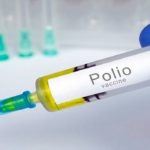healthysoch
New Delhi, July 22, 2019 ;
Research has shown that high systolic BP is more associated with adverse outcomes compared to high diastolic BP. But, now a new study has shown that both systolic and diastolic hypertension independently influence the risk of adverse cardiovascular events, regardless of the definition of hypertension (≥140/90 mm Hg or ≥130/80 mm Hg), although increase in systolic BP had a greater effect on outcomes.
In the study reported in the New England Journal of Medicine, online July 18, 2019, researchers analysed more than 36 million BP readings from 1.3 million adults in a general outpatient population to determine the effect of the burden of systolic and diastolic hypertension on a composite outcome of myocardial infarction, ischemic stroke, or hemorrhagic stroke over a period of 8 years.
- In survival models, a continuous burden of systolic hypertension (≥140 mm Hg; hazard ratio per unit increase in z score, 1.18; 95% confidence interval [CI], 1.17 to 1.18) and diastolic hypertension (≥90 mm Hg; hazard ratio per unit increase in z score, 1.06; 95% CI, 1.06 to 1.07) independently predicted the composite outcome.
- Similar results were observed with the lower threshold of hypertension (≥130/80 mm Hg) and with systolic and diastolic BP used as predictors without hypertension thresholds.
- A J-curve relation between diastolic BP and outcomes was seen that was explained at least in part by age and other covariates and by a higher effect of systolic hypertension among persons in the lowest quartile of diastolic BP.
“This analysis using a very large amount of longitudinal data convincingly demonstrates that both are important, and it shows that in people who are otherwise generally healthy, lower blood pressure numbers are better,” Said Deepak L. Bhatt, MD, MPH senior author of the study and, executive director of Interventional Cardiovascular Services at Brigham and Women’s Hospital and professor of medicine at Harvard Medical School
(Source: N Engl J Med. 2019 Jul 18;381(3):243-251; Kaiser Permanente)
Author : Dr KK Aggarwal , Padma Shri Awardee







